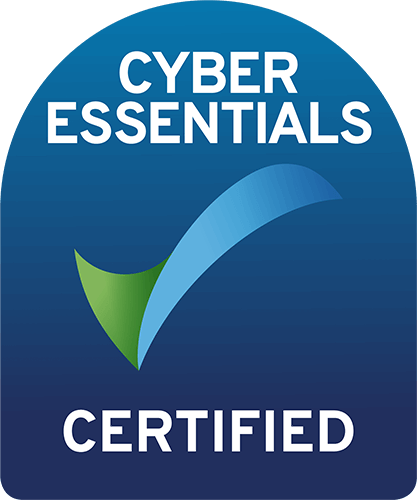Taking a simplified view, two prominent models have dominated the business software landscape over the last couple of decades: ready-made software-as-a-service (SaaS) and bespoke software development.
Whilst these models may be combined in some solutions, this guide explores the differences between both models from a legal standpoint, providing actionable insights for senior executives navigating software agreements.
For a more general overview of the legal challenges facing SMEs in the software industry, see our guide to the key risks facing software businesses operating in the UK.
The SaaS model: ready-to-deploy solutions
SaaS contracts govern the deployment of ready-made, cloud-based software solutions provided on a subscription basis.
These solutions are accessible online and maintained by the provider, making them ideal for organisations seeking efficiency and scalability.
Key features include:
- Immediate deployment: SaaS platforms are typically ready to use and require minimal setup.
- Ongoing updates: Continuous upgrades managed by the provider ensure clients can always benefit from new features and security patches.
- Scalability: A single code base is typically deployed across multiple users and flexible pricing models allowing businesses to scale their usage as needed.
Bespoke software: tailored for specific use cases
Bespoke software development involves creating a customised solution for organisations with unique requirements that off-the-shelf software cannot address.
Bespoke software may be deployed on-premise, via the customer’s private cloud or may be hosted in the provider’s own cloud.
- Custom design: Software is built to the client’s precise specifications and use cases.
- Ownership rights: Clients often acquire the intellectual property rights for long-term control.
- Structured delivery: Development involves phases such as discovery, design, prototyping, and testing.
Key legal differences between SaaS and bespoke contracts
Timing of Delivery and Implementation
Typically, SaaS platforms are available for use almost immediately, with providers managing all updates and ongoing maintenance.
Deployment typically involves setting up accounts and configuring permissions, ensuring a quick start for businesses.
For bespoke software, delivery timelines may span months or years, with significant collaboration required for integration and testing.
Providers must be careful not to commit to unrealistic hard deadlines that carry significant consequences for late delivery.
Typical legal strategies for mitigating developer risk include describing clear client dependencies with carve-outs for third parties causing delays, making timelines “indicative” or adding best or reasonable endeavours performance standards rather than outright commitments to meet timelines, creating a clear, formal change request process with a clear statement that any changes will alter agreed timeframes
Intellectual Property (IP) Rights
- SaaS Contracts: Providers retain IP rights, licensing usage to clients. Restrictions may apply to customisations or integrations.
- Bespoke Contracts: IP rights are often transferred to the client, granting full control over future enhancements. Clear agreements on reusable components are vital to prevent conflicts.
Liability and Indemnities
- SaaS Contracts: Providers limit liability for downtime or data breaches, emphasising robust service level agreements (SLAs). Clients should negotiate terms to mitigate operational risks.
- Bespoke Contracts: Developers assume greater liability, particularly for failing to meet specifications. Indemnities for IP infringement and non-compliance are common in bespoke agreements.
Service Levels and Warranties
- SaaS Contracts: SLAs define uptime guarantees and response times. Warranties focus on availability rather than specific functionalities.
- Bespoke Contracts: Warranties ensure the software meets agreed specifications, with remedies including rework or financial penalties for deficiencies.
Termination Clauses
- SaaS Contracts: Immediate access cessation upon termination is standard. Clients should negotiate data portability and notice periods to safeguard operations.
- Bespoke Contracts: Termination typically applies to project breaches. Clients retain delivered work and IP rights, but disputes may arise over partially completed software.
Confidentiality and Data Protection
- SaaS Contracts: Providers process client data, requiring compliance with data protection regulations like UK GDPR. Clear data processing agreements are essential.
- Bespoke Contracts: Focus is on confidentiality of proprietary business processes embedded in the software, with less emphasis on post-delivery data handling.
Escrow Arrangements
- SaaS Contracts: Rare in SaaS agreements, as providers retain control of the platform. Focus is on SLAs for service continuity.
- Bespoke Contracts: Common in bespoke projects, ensuring source code access if the developer fails to maintain or deliver the software.
Change Management
- SaaS Contracts: Providers limit customisation requests, focusing on standardised updates.
- Bespoke Contracts: Change management is critical, with clauses governing scope changes, costs, and timelines.
Case Studies: Real-World Applications
SaaS Success: Salesforce
Salesforce exemplifies SaaS efficiency with rapid deployment and consistent feature updates. Legal highlights include robust SLAs and liability limits for data breaches, demonstrating the importance of defining responsibilities in service agreements.
Bespoke Innovation: TfL’s Oyster Card System
Transport for London’s bespoke Oyster card system showcases the value of custom solutions. IP ownership allowed TfL to expand the system, while clear milestone-based contracts ensured timely delivery despite project complexity.
Optimising Software Development Contracts
For businesses seeking software solutions, understanding the legal nuances of SaaS and bespoke contracts is critical. By aligning contract terms with operational needs—whether for scalability or customisation—executives can secure solutions that deliver lasting value.
- Search-Friendly Insights: Keywords such as “SaaS agreements,” “software development contracts,” and “IP rights in software” help connect with readers seeking specific advice.
- Focus Areas: Highlight SLAs, IP ownership, and implementation timelines to address common decision points for software procurement.
By leveraging clear terms and industry examples, businesses can navigate these contracts with confidence, ensuring successful outcomes.
About Clearlake Law
Clearlake provides fixed-fee, lawyer-led contract management services specialising in the SaaS and advanced manufacturing sectors.
We manage all of our clients’ day-to-day commercial contracts, from intake to signature, and we monitor those contracts throughout their lifecycle.
Contact us today to learn how we could support your business for a fixed price.




